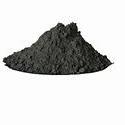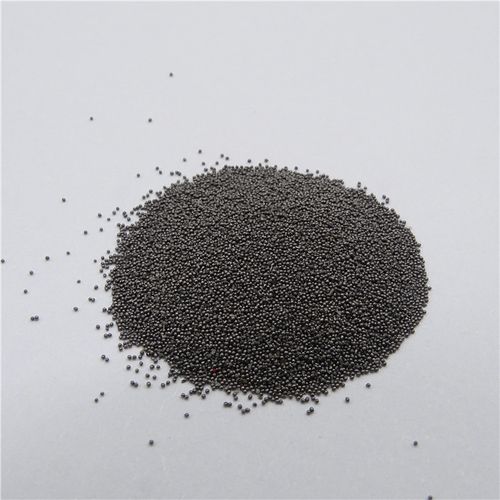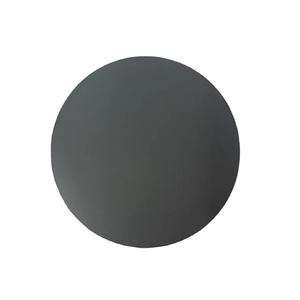Overview of electric arc furnace boron carbide
Boron Carbide (B4C) is a ceramic compound renowned for its exceptional hardness and wear resistance, ranking just below diamond and cubic boron nitride in terms of hardness. Composed of boron and carbon atoms arranged in a covalently bonded crystal structure, it exhibits unique physical and chemical properties that make it highly valuable in various industrial and military applications. Boron carbide’s high melting point, low density, neutron-absorbing capability, and extreme toughness further distinguish it among advanced materials.
Features of electric arc furnace boron carbide
-
Extreme Hardness: With a Mohs hardness of around 9.3 to 9.5, boron carbide is one of the hardest materials known, surpassed only by diamond and cubic boron nitride.
-
Lightweight: Despite its hardness, boron carbide has a relatively low density of about 2.52 g/cm³, which makes it an attractive material for lightweight armor systems.
-
Thermal Stability: It possesses excellent thermal stability, maintaining its properties up to temperatures around 2,000°C, making it suitable for high-temperature applications.
-
Neutron Absorption: Boron carbide is a potent neutron absorber due to its boron content, making it ideal for nuclear shielding and control rods.
-
Chemical Resistance: Resistant to most acids and alkalis, except for hydrofluoric acid and hot concentrated alkaline solutions, ensuring durability in corrosive environments.
-
Abrasion Resistance: Its exceptional wear resistance makes it suitable for applications where friction and abrasion are prevalent, such as sandblasting nozzles.

(electric arc furnace boron carbide)
Parameters of electric arc furnace boron carbide
The electric arc furnace is an electrical equipment used to process and refine certain materials, including boron carbide. The parameters of the electric arc furnace can be determined by various factors such as the size and type of the metal being processed, the operating conditions (such as temperature, power, gas flow rate), the heat management system, and the energy storage capacity.
For example, if the electric arc furnace is designed for producing high-quality boron carbide, then it would need a temperature range of between 1500°C and 2400°C, which would require the use of high-speed heating systems and precise control of gas flow rates. Similarly, the operating conditions would also need to be optimized, including ensuring that the heat is applied accurately and efficiently while minimizing waste.
To manage the heat produced in the furnace, several optimization techniques such as phase control, memory control, and flow control can be employed. Phase control involves adjusting the flow rate of the gas or air to maintain the temperature of the material. Memory control involves storing the heat generated during processing to avoid overloading the furnace and improving the efficiency. Flow control involves controlling the amount of material flowing through the furnace to ensure that the quality of the product is maintained.
In addition to these technical parameters, the efficiency of the electric arc furnace also needs to be carefully calculated. This involves determining the maximum amount of work that can be done with the given energy source and determining the time required to complete the processing steps.
Overall, the electric arc furnace is an important tool for achieving the desired quality and quantity of boron carbide. Its parameters must be carefully tailored to ensure optimal performance and minimize waste.

(electric arc furnace boron carbide)
Applications of electric arc furnace boron carbide
-
Armor Systems: Widely used in body armor, vehicle armor, and bulletproof vests due to its lightweight and superior protection capabilities.
-
Nuclear Applications: As control rods and shielding material in nuclear reactors because of its neutron absorbing properties.
-
Abrasive and Cutting Tools: In grinding wheels, polishing powders, and cutting tools due to its hardness and wear resistance.
-
Industrial Nozzles: For sandblasting and water jet cutting applications where resistance to wear and erosion is critical.
-
Military and Defense: As a component in armor-piercing projectiles and defensive systems.
Company Profile
MyCarbides is a trusted global chemical material supplier & manufacturer with over 12-year-experience in providing super high-quality carbides and relative products.
The company has a professional technical department and Quality Supervision Department, a well-equipped laboratory, and equipped with advanced testing equipment and after-sales customer service center.
If you are looking for high-quality carbide materials and relative products, please feel free to contact us or click on the needed products to send an inquiry.
Payment Methods
L/C, T/T, Western Union, Paypal, Credit Card etc.
Shipment
It could be shipped by sea, by air, or by reveal ASAP as soon as repayment receipt.
FAQs of electric arc furnace boron carbide
Q: Is electric arc furnace boron carbide toxic?
A: Pure boron carbide is generally considered safe to handle. However, during machining or grinding, dust inhalation can be a concern, requiring proper ventilation and protective equipment.
Q: Can electric arc furnace boron carbide be machined?
A: Due to its extreme hardness, machining boron carbide is difficult and requires specialized techniques and diamond tooling. Grinding, EDM (Electrical Discharge Machining), or laser cutting are common methods.
Q: How does electric arc furnace boron carbide compare to tungsten carbide in terms of hardness?
A: electric arc furnace boron carbide is harder than tungsten carbide, with a Mohs hardness of around 9.3 to 9.5 compared to tungsten carbide’s 8.5 to 9.
Q: What is the primary use of electric arc furnace boron carbide in the military sector?
A: electric arc furnace boron carbide is primarily used in the military for body armor, armored vehicles, and as a component in armor-piercing ammunition due to its combination of hardness, light weight, and ballistic performance.
Q: Can electric arc furnace boron carbide be used in high-temperature applications?
A: Yes, electric arc furnace boron carbide maintains its structural integrity and properties up to very high temperatures, making it suitable for use in extreme heat environments such as furnace linings and high-temperature ceramics.

(electric arc furnace boron carbide)





